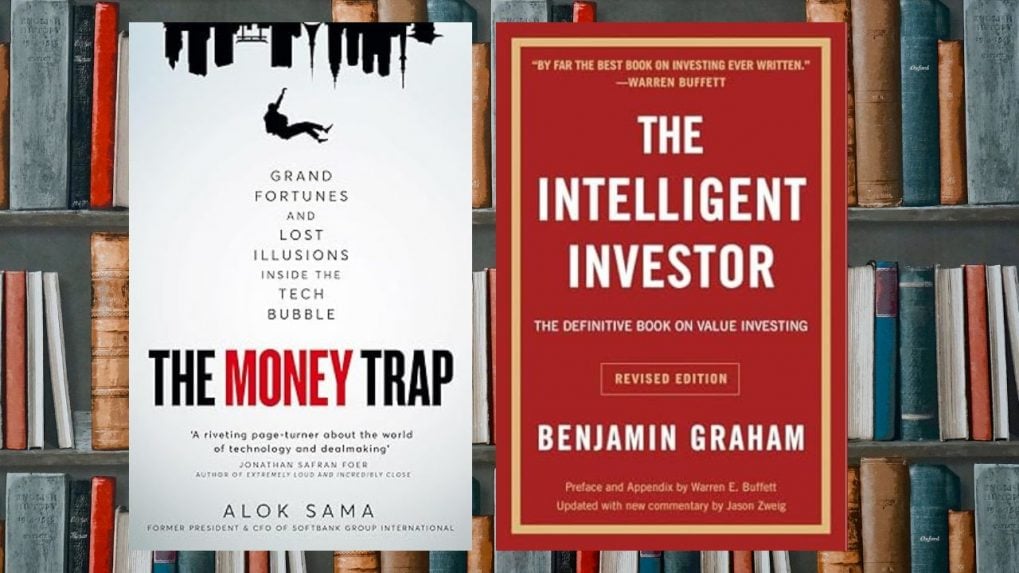Bookstrapping: Alok Sama's 'The Money Trap' and Benjamin Graham's 'The Intelligent Investor'
The Intelligent Investors’ timeless grasp of investing is miles apart from The Money Traps’ world of espionage, threats, sharp suited lawyers and honey traps, highlights Reeta Ramamurthy Gupta in her review.
ADVERTISEMENT
Making sense of a red October at the Sensex
It isn't the job of the stock market to equalize everyone's wealth, says Reeta Ramamurthy Gupta in her twin review of Alok Sama’s ‘The Money Trap’ and Benjamin Graham’s ‘The Intelligent Investor.’
I got my hand on 75th anniversary edition of The Intelligent Investor (2024) by Benjamin Graham updated with a new commentary by Jason Zweig. It reads like a stoic captain navigating a tumultuous sea. With the Indian Diwali being a washout for the Sensex, one cannot help but admire how applicable the fundamentals of Graham’s book, originally published in 1949 are, even today.
For the uninitiated, he differentiates between investing and speculation. He defines investing as an activity that is conducted through the fundamental analysis of companies, where the investor seeks to avoid serious losses while looking for adequate returns as opposed to extraordinary performances. In tandem, I also finished The Money Trap, a book by Morgan Stanley veteran Alok Sama, who details his experiences with modern investing in technology companies alongside Softbank’s Masayoshi San and Nikesh Arora.
What’s the funny parallel between these two books? More money isn't always the answer. Here are our five #Bookstrapping insights:
1. Human capital can push your income past the rate of inflation, says Graham, after defining inflation as a part the environment, not just an external event. Graham adds that a sound intellectual framework for decision making (protected from crazy emotional states) is the most important thing to invest successfully; not inside information and definitely not high IQ. Very very moot, even today.
2. Warren Buffet has repeatedly credited Benjamin Graham with being his inspiration. Graham earned returns during the most difficult times including the Great Depression- he beat the market by an average of roughly 5 percentage points- between 1936 and 1956. Huge!
3. The Intelligent Investors’ timeless grasp of investing is miles apart from The Money Traps’ world of espionage, threats, sharp suited lawyers and honey traps. Alok Sama’s language is definitely not that of a CA, as witnessed by sentences like 'Indians are frequently like crabs in a bucket'. He also knows the value of understatement; how 'some kid named Justin Bieber' was the opening act before a Taylor Swift concert at Wembley in the early 2000s. He writes his book like a thriller.
4. “The only reason why people examine their lives is to figure out ways to make more money”, says Sama. Even though, money isn’t everything, but originality may be. “Even when it flirts with absurdity, originality is thrilling. In the race against machines, originality may be our last strand’, Sama emphasizes. Good advice!
5. Graham understood that investing is a lonely activity in which isolated individuals yearning for connection and approval of their peers easily fall prey to manipulators. Talking about the fallacy of investing with borrowed money, Graham points out that we all hate admitting our own short comings. “Bright energetic people have promised to perform miracles with other people's money since time immemorial. They are usually able to do it for a while, at least appear to, but have inevitably brought losses to their public in the end,” he says. This is why fund managers walking around as miracle workers, were punished after the financial crisis of 2008-2009.
Jason Zweig’s commentary after each chapter is extremely insightful. The best way to sum up both books is as follows-
Believing you have more control than you do, is a sure way to end up earning lower returns then you should be. Feelings can't change facts. It isn't the job of the stock market to equalize everyone's wealth. Be wise with your asset allocation and rebalancing, if you want to play long term.
Reeta Ramamurthy Gupta is a columnist and bestselling biographer. She is credited with the internationally acclaimed Red Dot Experiment, a decadal six-nation study on how ‘culture impacts communication.’ On Instagram @OfficialReetaGupta


